INGREDIENTS WE DONT USE
Redefining "Clean" Skincare With Innovation
Redefining "Clean" Skincare With Innovation
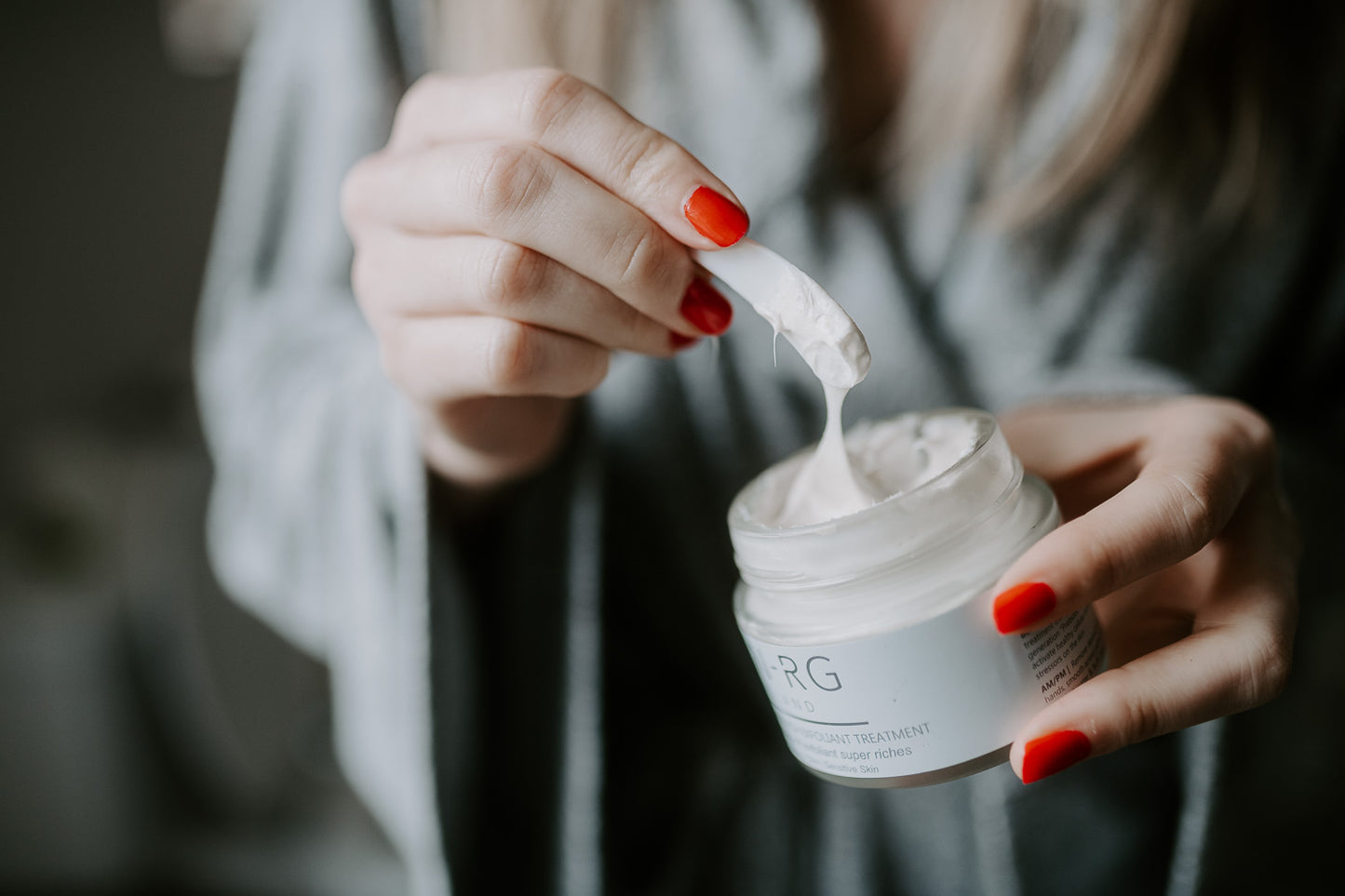
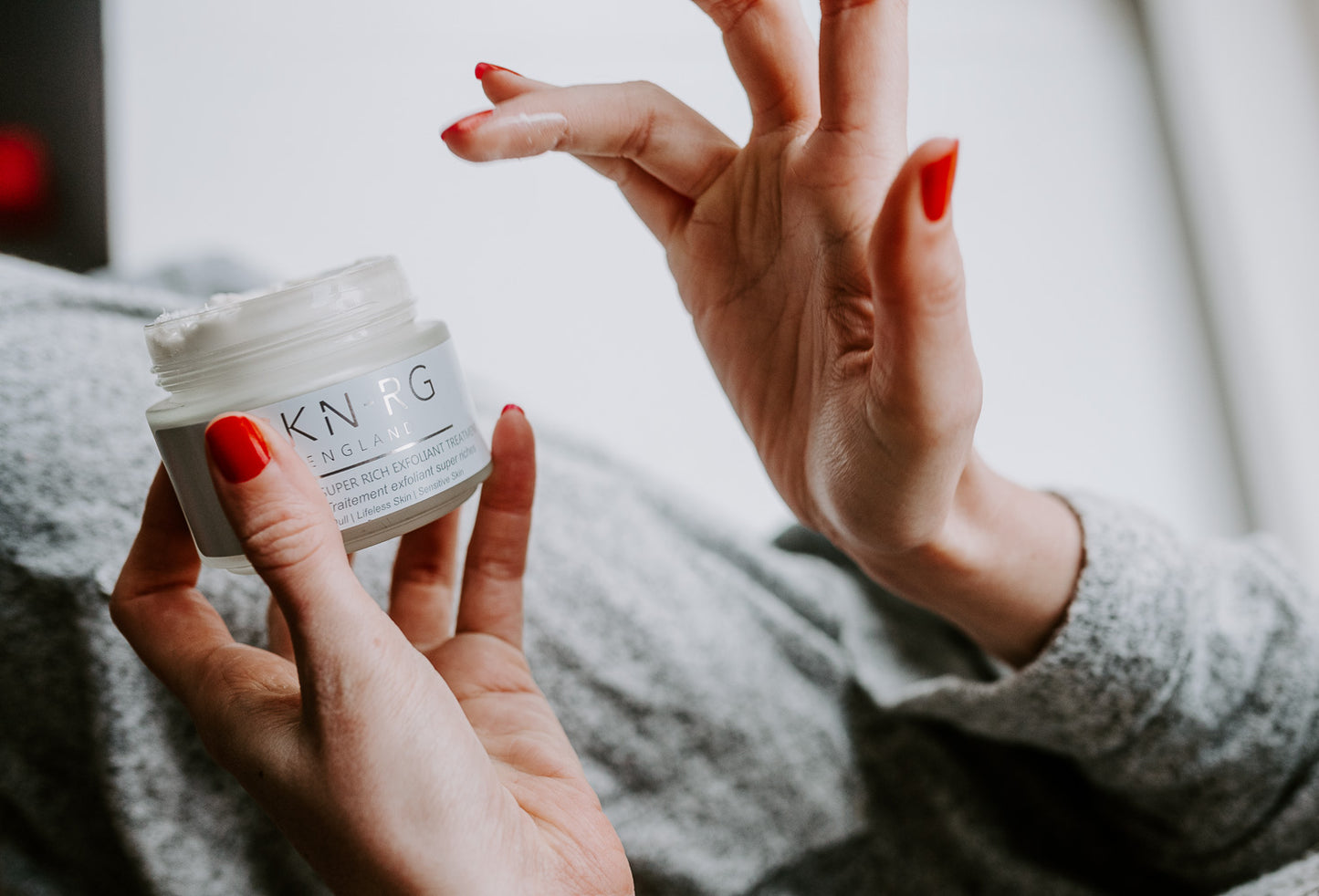
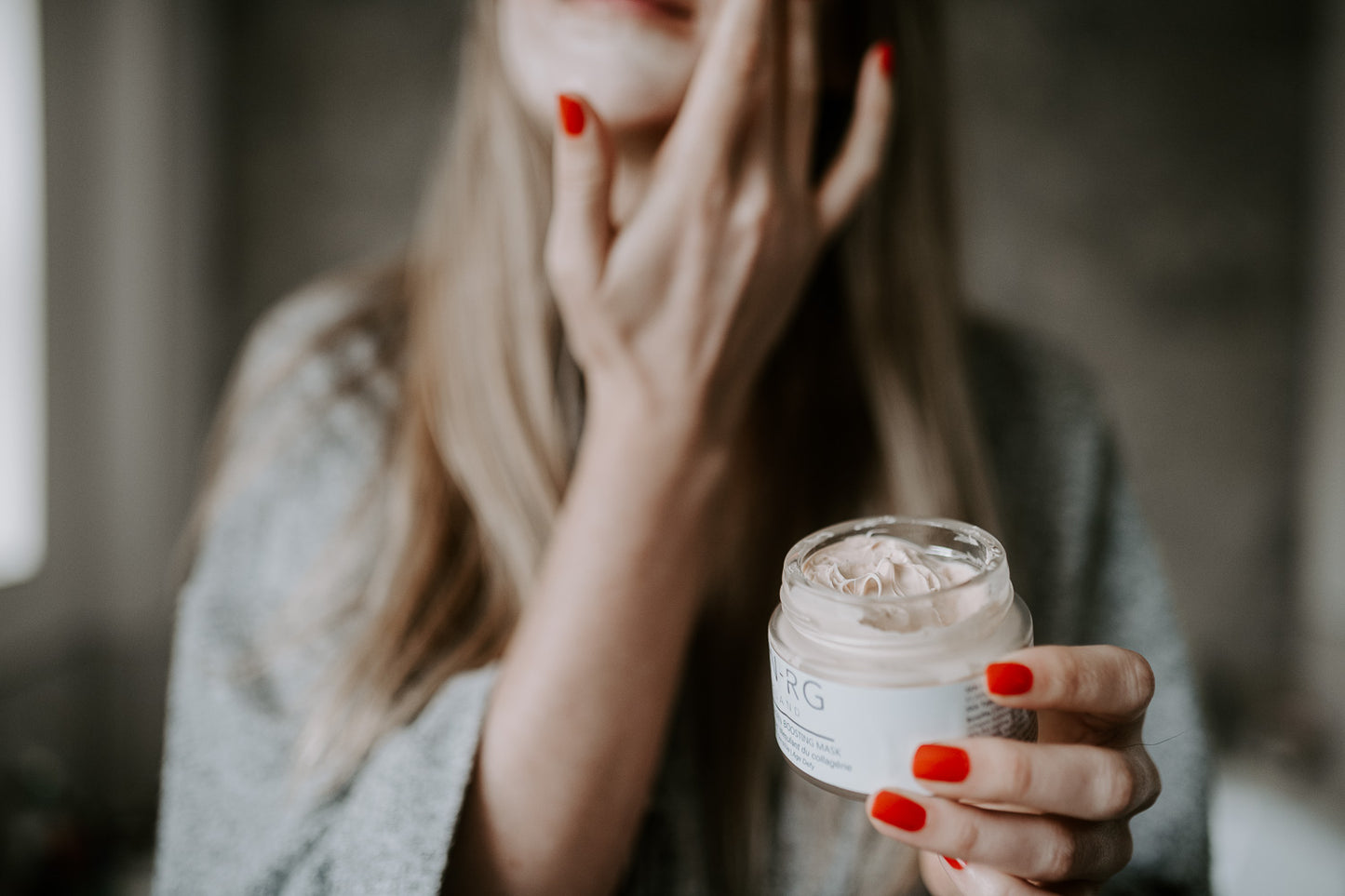
Avoid Acrylates Copolymer:
Acrylates Copolymer, a microplastic, is commonly used to thicken water or improve the texture of products. When added to warm water, it can create a lotion that resembles a face cream. However, it's important to understand that this 'lotion' is essentially a mixture of water and plastic. Despite being classified as inert, it has the potential to seal the skin, disrupting its normal functions and leading to various skin issues. Moreover, there are significant concerns about its environmental impact when it's washed down the drain and its potential to remain in the body.
Avoid Animal Ingredients:
As a proud Vegan formulator and Leaping Bunny Cruelty-Free Registered Brand, we assure you 100% confidence that our products are cruelty-free. We work hard to formulate and seek innovations through our laboratory, ensuring our products are free from animal derivatives such as sheep lanolin, animal hyaluronic acid, animal collagen, beeswax, and animal bulking agents. Our products are not tested on animals by EU and British Regulations, and we do not sell them in the People's Republic of China.
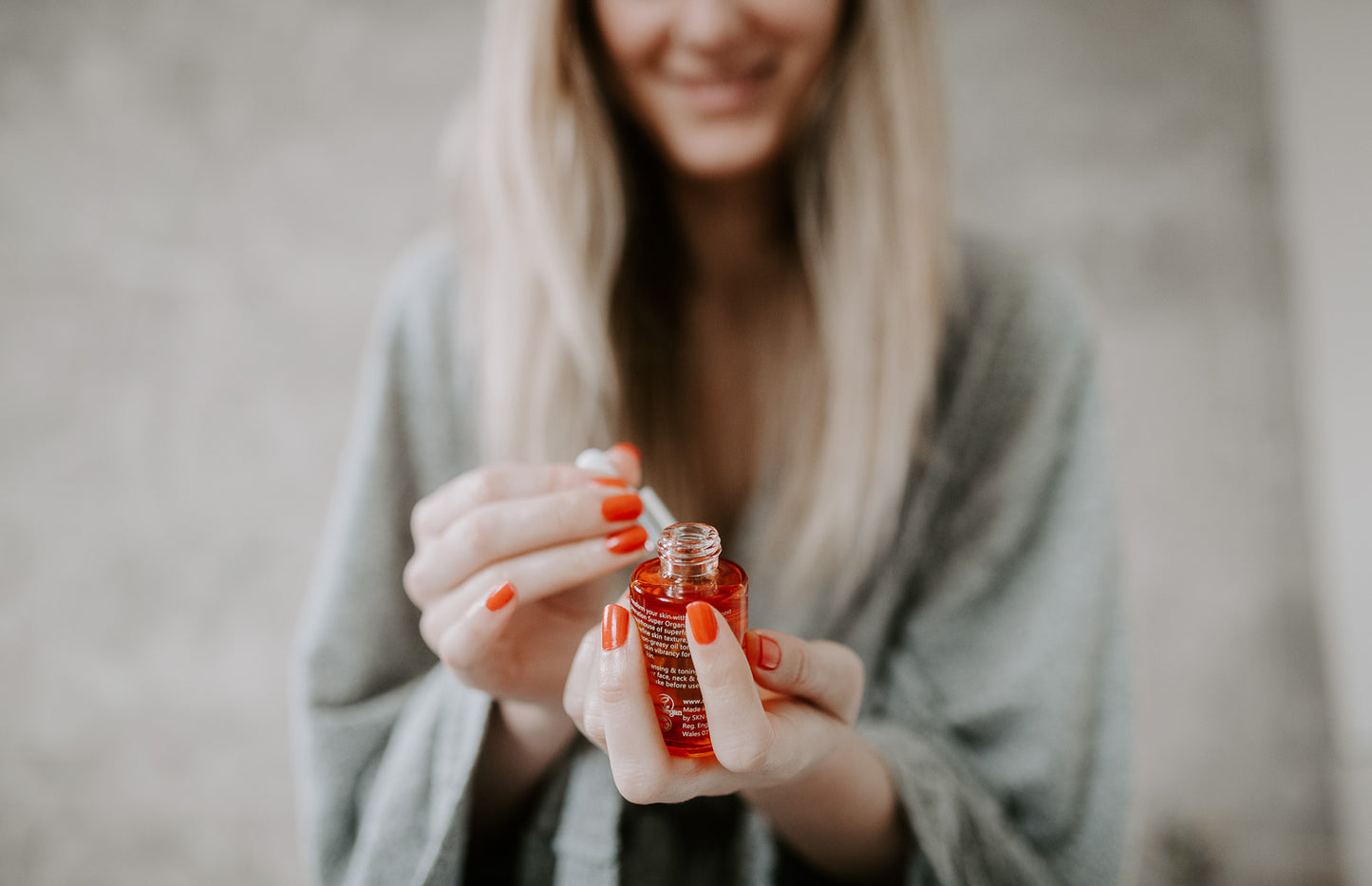
Avoid Carbomers:
Many companies use synthetic ingredients like Carbomers to suspend, bind, and thicken products, or to combine high-water ingredients. However, these ingredients can potentially harm your skin and the environment, so it's crucial to be cautious when using products containing Carbomers.
Avoid Dimethicone:
Dimethicone, a texture enhancer from the silicone family, can seal blocked pores and contribute to acne, blackheads, and trapped dirt if not removed correctly. Our in-house testing found it to be a key contributor to creating blackheads, which are very difficult to remove and contribute to blocked pores. The industry is divided on this one as it is a silicone.
Avoid EDTA:
EDTA stabilizes synthetic ingredients, pushing other ingredients deeper to give more effect. Also known as Disodium SALT, it can cause long-term issues in the skin. Be aware of the potential long-term effects of EDTA on your skin and the environment.
Avoid Fragrances
We only use natural essential oil or plant derived aromas that are 100% natural.
Avoid Phthalates
Phthalates are chemical compounds that are used to make plastics more durable and are also known as plasticisers. They are often added to personal care products to help lubricate other substances and to carry fragrances.
Avoid Liquid Petroleum:
Although these ingredients can give the impression of soothing the skin, they may actually just cover it. Over time, the skin can dry out, requiring you to apply more, thus creating a cycle. When you stop using it, the skin can become flaky and worse than the initial condition. Some products containing liquid petroleum may state "not for long-term use" on the label. It's important to understand what this phrase means.
Avoid Nanomaterials:
Nanomaterials are microscopic particles that can penetrate the skin, and the scientific community is not certain of their effects on the body. The term "nano" indicates that the ingredient measures less than 100m.
Avoid Nylon:
Nylon is not just reserved for making tights. It is used to make products feel nice and give them slip and slide. However, it can contribute to breakouts and pollute rivers. It is a form of liquid plastic that, when washed down the sink, becomes microparticles that pollute our environment and the life that lives there.
Clean + Cinical Restorative Skin Health Backed By Science
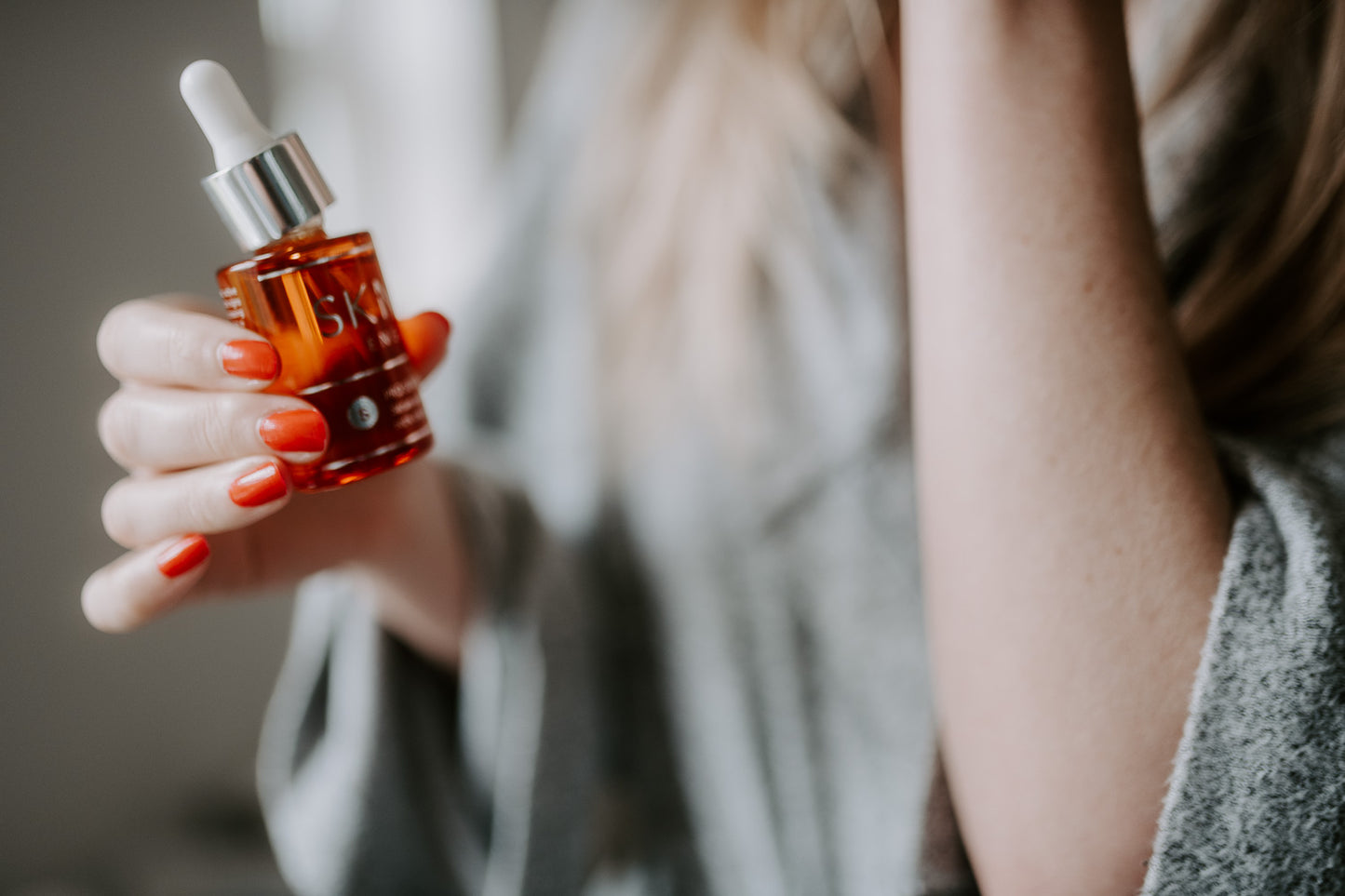
Avoid Parabens:
Parabens are synthetic preservatives widely used in the beauty industry. They maintain a product's integrity by preventing microbial development. So, what makes parabens controversial? Parabens have been linked to certain health and environmental concerns.
Avoid Phenoxyethanol:
This preservative is not allowed under the Soil Association or COSMOS. It is commonly found in a wide range of skincare products and has been flagged by several watchdog organizations for causing severe skin sensitivity, dryness, acne, and contact dermatitis. Additionally, it is absorbed by the skin and is known to be a skin irritant with suspected neurotoxic effects. Companies use it because it can be added at high temperatures, reducing production costs. In contrast, SKIN-RG's preservative must be added when cool, which takes longer but creates a gentler product that is safe for use, even around the eyes.
Avoid Silicones:
These are used to give products a nice feel and smooth texture. While they are inert and not known to cause issues to the skin, they pollute rivers and are a form of liquid plastic. When washed down the sink, they become microparticles that pollute our environment and harm the wildlife.
Avoid Sulphates, SLS Soaps:
They come in different forms and are foaming agents that can irritate the skin.
Avoid Triclosan
Triclosan is a chemical ingredient with antibacterial properties. In the USA 2016, the FDA ruled companies couldn’t sell triclosan-containing consumer products such as antibacterial soaps anymore. They stated these products haven’t proven to be any more effective than plain soap and water. Scientists are still studying the health effects of triclosan.
The importance of taking care of our skin goes beyond just looking good on the outside. It turns out that...
What's Happening With My Skin During peri/menopause? Conflicting Information? Confused? Feeling overwhelmed. Get the complete guide!